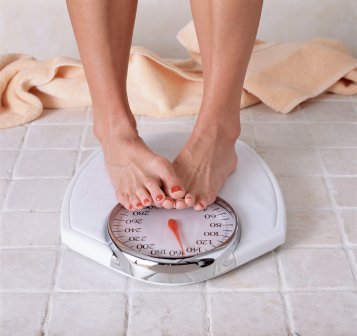In the health and fitness world we are bombarded with the word weight. Popular diet schemes have “weigh-ins” and mainstream media dramatizes the importance of weight as a success measure far too often. For instance, the network show The Biggest Loser spectacularly showcases people getting on a giant scale to announce to the world how much weight their participants have lost.

The truth is that weight is only one of many measures you can use to gauge the success of a particular fitness regimen. Some people’s unhealthy obsession with weight loss influences them to worry about their scale weight so much that they will let themselves get dehydrated, lose valuable muscle, or in extreme cases fall victim to a life-threatening eating disorder. If your goal is weight loss, then weighing yourself all the time could actually deter you if you are swayed by days where internal fluid recalibration makes you believe you have had a setback.
Some fitness experts recommend only weighing yourself once a week. I’m actually a proponent of weighing yourself every day because it is part of a daily routine that reminds me of my fitness goals, but that is because I have the self-disciple to not overreact if I see a five-pound jump from one day to the next (and science backs up my methodology). These type of fluctuations are common, especially with dieters.
There are a number of other good data measures in addition to scale weight you can use to track your progress including body measurements (with a tape measure), body fat percentage, as well as fitness, flexibility, and strength testing. In short, a scale is a valuable tool but there is no need to become a slave to daily weigh-ins. For many, there are more useful ways to change behavior than using weight as a success measure.
